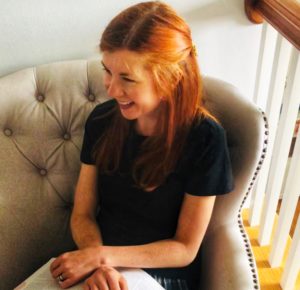By Kathleen Willcox
“I saw women leaving the Court, and I knew I had a decision to make,” Emily Wines recalls. “I felt like the Court did not reflect my values, and I could walk away and be fine. I had made it in my career, and I knew nothing would change [even if I didn’t achieve] my Masters certification. But I thought of all the young people the Court could potentially help, young people who needed these certificates of accomplishment to prove what they knew.”

Wines didn’t just stay with the Court of Master Sommeliers (CMS), she led it through a historic crisis (from which it’s still in the midst of emerging). Two years after the cheating scandal that tarnished its reputation in 2018, an investigative report in the New York Times published an account of 21 women who accused male master sommeliers of using their positions of power and influence to assault, harass and intimidate them as they tried to work their way through the ranks of the CMS’s prestigious wine certification program.
The response was immediate and severe: three female advanced sommeliers petitioned for sweeping changes, and 730 people signed on to boycott CMS events — including exams — unless the Board of Directors resigned en masse.
‘Impossible to Ignore’
“The article and the issues it raised were impossible to ignore, because it showed just how pervasive harassment and the culture of quid pro quo was [within CMS],” Wines says. “And honestly, the degree and severity of the issue was shocking — but the problem itself was not.”
Wines, who previously served on the Board of CMS from 2013 to 2017, says she began raising the issue at that time. “That was when the Court was in its heyday, but even then, we were discussing the need to tighten standards, have non-fraternization policies and rules about recusing yourself from examinations with someone you have had romantic entanglements with,” Wines explains.
But nothing was done until the report dropped on CMS like a bomb. Within a week, the transformation of CMS began. Seven male master sommeliers were named and suspended, and within a few months, the entire board stepped down. A third-party investigation of 23 different members commenced. Following a months-long probe, six male master sommeliers were ousted in 2021: Drew Hendricks, Joseph Linder, Matt Stamp, Robert Bath, Fred Dexheimer and Fred Dame (the 1987 founder of the Americas chapter of the Court).
While the Court was established to create a formal wine certification program, and the ultimate goal is achieving master sommelier status, there are four levels of certification, each with its merits and benefits.
Wines was, if anything, more motivated to stay and help transform the Court for the up-and-coming wine professionals aiming to pass the lower three exams — introductory, certified and advanced—than the master certification, which only 273 professionals have received worldwide since its establishment in 1969.
The Court Should ‘Reflect the World’
“I wanted the Court to reflect the world more accurately,” Wines says. “The organization is largely made up of white men. That’s a reflection of fine dining as it stands today, but I want that to change. So do many other people in the industry.”
Wines, a self-identified queer woman, acknowledges that her rocket ride to the top of the profession — in 2008 at age 33, the James Beard-winning Wines became one of 14 people who passed the master sommelier exam on the first try and, in 2017, she became vice president of beverage for the sprawling Cooper’s Hawk restaurants concept — is an aberration.
“I joined the newly formed CMS board to reframe the code of ethics and create programs and opportunities for people of color, women, members of the LGBTQ+ community and people in geographic regions that are not focused on wine culture,” Wines says.
Specific initiatives she and the Board have instituted include 100 scholarships each year that cover the introductory course and a women’s symposium for sommeliers focused on exam preparation and career advancement. More broadly, Wines says she wants to change the “private club and ivory tower elitist” vibe of CMS, so that everyone involved can feel welcome, with access to “pathways to success for all.”
Martin Beally, a master sommelier and Wines’ colleague as beverage director at Esquire Cooper’s Hawk, applauds Wines’ advocacy and push for pervasive change in the face of so many challenges.
“Very few could have led our organization these past few years. Thankfully, Emily was one of them,” Beally says. “She is authentic, direct and has brought to the table a set of life experiences that give her insight into many topics that are important to our industry now, such as the state of women in wine, increasing engagement with BIPOC and LBTGQ communities, or making beverage education more relevant for all in our industry.”
Changes Within
One of the biggest challenges, Wines says, is the “navel-gazing” built into work on the Court’s board. “It’s a volunteer gig,” she explains. “So everyone is distracted by their ‘real’ job, and there’s not any sense of perspective, because we’re all in the same industry working together.”
Sabato Sagaria, a master sommelier, member of the Court’s board and managing partner at Apres Cru, applauds Wines’ ability to tune out the external and internal pressure, and focus on the task at hand.
“When Emily assumed the role as chair, she had to overcome a divided community with a cloud of controversy hanging over the organization,” Sagaria says. “There were countless conversations that she had with survivors, candidates and members, many of whom felt disenfranchised by the organization. She made sure all the perspectives were shared and heard and made every attempt to proactively engage in situations that others would have shied away from. Those voices not only helped guide us through the rough spots; they have also helped reshape our mission and values as an organization going forward.”
Wines, along with other members of the 15-person board — which now includes six people of color, four women and two members of the LGBTQ+ community — decided to hire an executive director to expedite the Court’s evolution.
“We hired Julie Cohen Theobald because we knew she’d be the best person for the job,” Wines says. “And we were right. It’s been amazing to see how quickly she’s able to move, modernize and transform the Court, because that’s her entire focus.”
Theobald, for her part, notes that when “the Court of Master Sommeliers, Americas, was facing multiple existential crises and many were walking away from the organization, Emily Wines leaned in.”
_______________________________________________________________________

Kathleen Willcox
Kathleen Willcox writes about wine, food and culture from her home in Saratoga Springs, N.Y. She is keenly interested in sustainability issues, and the business of making ethical drinks and food. Her work appears regularly in Wine Searcher, Wine Enthusiast, Liquor.com and many other publications. Kathleen also co-authored a book called Hudson Valley Wine: A History of Taste & Terroir, which was published in 2017. Follow her wine explorations on Instagram at @kathleenwillcox
_______________________________________________________________________
 About Wine’s Most Inspiring People: Each year, Wine Industry Advisor chooses 10 individuals from within the wine industry who showcase leadership, innovation and inspiration. For the first time in 2021, WIA opened submissions to the industry at large, and the success of this new nomination process was quickly recognized, as honorees came from more diverse wine regions and had more distinct stories to tell. With more than 100 nominees in 2022, the editorial team selected the top 10 individuals who, they felt, had truly positively impacted the U.S. wine culture over the past year.
About Wine’s Most Inspiring People: Each year, Wine Industry Advisor chooses 10 individuals from within the wine industry who showcase leadership, innovation and inspiration. For the first time in 2021, WIA opened submissions to the industry at large, and the success of this new nomination process was quickly recognized, as honorees came from more diverse wine regions and had more distinct stories to tell. With more than 100 nominees in 2022, the editorial team selected the top 10 individuals who, they felt, had truly positively impacted the U.S. wine culture over the past year.
















